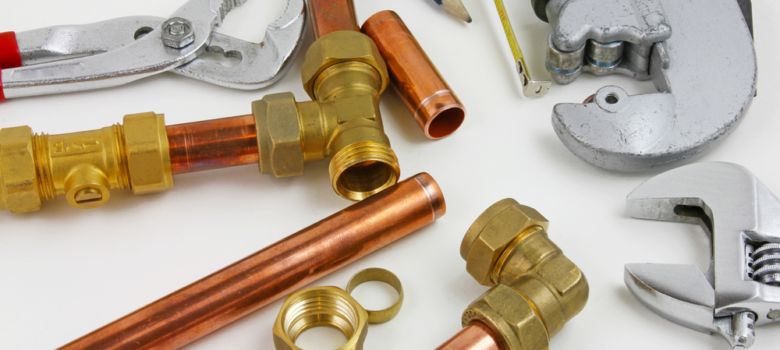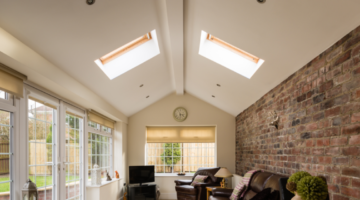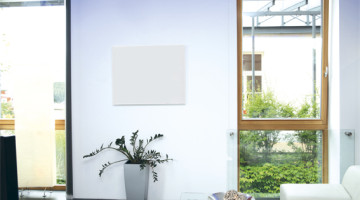
Central heating is by far the most common form of warming our homes here in the UK, however some of us are still using other methods to stay warm. So why do people love central heating so much and how much does it cost to install?
How much does central heating cost to run?
There are many different ways to heat the home, each with their own advantages and restrictions. In terms of average price per unit, here’s a rough guide:
- Mains Gas – 4p / kWh
- LPG Gas – 7.5p / kWh
- Heating Oil – 6p / kWh
- Bottled Gas – 14p – 32p / kWh
- Electricity – 15p / kWh
Although each of these methods of heating comes with its individual associated costs and levels of efficiency, mains gas is still the cheapest. Even when you consider that the very best brand new boiler will only be about 90% efficient. Depending on the size of the property, switching to gas could see you saving from £200 to £800 a year – it really can be that different.
There are a few exceptions to these rules; most notably biomass boilers and heat pumps. We’ll cover these options a little further down in this article.
Cost of installing central heating
Cost to connect a gas supply
Installing central heating requires a gas connection – something most but not all of us have access to. The cost of connecting your property to the gas grid can vary from hundreds to multiple thousands. If Susan next door has been using gas for years, then you can probably get hooked up very cheaply. However if your property is a farm in the middle of nowhere with no neighbours and only a flock of sheep for company, you might find that the costs to install a central heating system spirals.
You can only get gas connected to your property by the network distributor for your area. You can find a full map here.
For a more detailed look at the cost of connecting a gas supply to your home, take a look here.
Cost to install central heating
Once you’ve connected a gas supply, the next cost is buying and retrofitting the new boiler, radiators, and all the necessary pipework. Again, the cost of this is hugely variable, depending on the size of the property, the type of boiler, the number and style of radiators, the fabric and layout of the building, etc. As a rule of thumb, it’s going to be expensive. We’re looking at a £2,500 starting price, with bigger buildings reaching tens of thousands.
Cost of central heating alternatives
Fan assisted storage heaters
Much more efficient than the old style storage heaters, the newer fan assisted models can retain their charge for longer and provide more better temperature control. They’re designed to work with Economy 7/Economy 10 tariffs, charging up when the energy is cheapest and saving it for peak times. It should be noted, however, that these tariffs are likely to start disappearing soon as they rely on base load energy generation which is maintained by technologies that, in the UK, are being rapidly overtaken by newer, renewable sources. We therefore advise all our readers against investing in storage heaters.
Heat pump
The most efficient option for off-gas heating is to invest in a ground source heat pump. Air source pumps are decent too, but a ground source pump is the best option, if you have the space and disposable income to cover the initial cost. These are expensive but you benefit from the renewable heat incentive, which over a period of 7 years should cover much of the initial install cost, often times exceeding it. This means that after that time you could have money in yo ur pocket on top of all the energy savings.
Infrared Heating
Infrared panels work a little differently than the heating you might be used to. The don’t heat the air like conventional heating systems (even radiators heat by convection, which is warming of the air), instead they emit far infrared, which travels unimpeded from the panel until it hits a solid object (you, the couch, the walls, your gerbil, etc). These objects then absorb the infrared and warms up.
This kind of electric system is also perfect for pairing with renewable energy generation, such as solar PV or a solar heat pump (thermodynamic). If your energy generation is good enough, you could be running this heating system effectively for free.
Is it worth the cost to install central heating?
Despite the hefty initial retrofit cost of installing a central heating system to your property, most people would benefit long term from the investment. With potential savings of several hundred pounds a year, a central heating system could pay for itself within 10-15 years. Not an immediate payback, but the pipework and radiators would then be in place for any replacement boilers needed in the future.
Interested in getting central heating installed? Use our contact form below to get in touch with us…













Ive noticed a lot of sites on a google site that give a rough price to central heating installs. Unfortunately all seem to be so incorrect its misleading customers to actually think a full central heating system into their home can be completed for as low as £2500. Im confused as to where you can even start at this figure. The boiler alone can range from £500 to £4000 depending on size, brand and type. Now lets not even start talking unvented cylinders cost including associated controls, pipe work and fittings. Marry that with the cost of the radiators, trvs, thermostats, motorised valves, diverters, immersions, the labour to make good all floors and walls from pipework. The electrical bonding, clipping and all the regulatory work to meet current standards…….. if you honestly believe even on the smallest properties this is 3 days work and £2500 you are greatly confusing any prospective home owners.
The materials alone for an average 3 bed house can exceed 6k let alone labour.
An straight boiler swap to an existing system averages £2000 by itself.
Please stop giving such unrealistic rough prices especially with options like ‘wet underfloor heating’…..a kitchen of reasonable size, floor dug to well below current level, all matting, pipe work, manifold, controls, screed, leveller and sealer would be at your opening starting price for the full install by itself.
Hi David,
We work closely with a heating engineer and these are the heating costs quoted. As mentioned the £2500 is a starting price and so for a sizeable property the quote will be considerably more.
No one would do it for that this site is a joke!